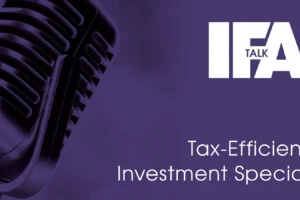Today’s listing of the Invesco MSCI Emerging Markets ESG Universal Screened UCITS ETF is the latest addition to the firm’s range of passive ESG funds.
Investors now have a wide choice of eight regional and global exposures that apply a consistent set of exclusions and are designed to increase holdings in companies that have robust and improving credentials around various ESG issues.
Chris Mellor, Head of EMEA ETF Equity and Commodity Product Management at Invesco, comments:
“As risk appetites have been increasing on the back of economic recovery, we are seeing some investors positioning their portfolios in higher growth areas. Flows into emerging market ETFs during the first half of the year were broadly equal to those into Europe and trailed only those into global and US equities.
“At the same time, we see that 44% of all net flows have been going into ESG products, with more than $1.2 billion into our range of MSCI ESG Universal Screened ETFs. We believe these trends could continue as many emerging markets are well-positioned economically as the world comes out of the pandemic and as investors appreciate the potential benefits that ESG strategies can offer their portfolios.”
The index is constructed from the parent MSCI Emerging Markets index, which is comprised of large- and mid-cap stocks across 26 countries, by first excluding any company involved in controversial, conventional or nuclear weapons, civilian firearms, oil sands, thermal coal, tobacco or recreational cannabis.
Any company that has faced severe controversies over ESG issues in the past three years or has a very low MSCI ESG score is also removed from the index.
The remaining stocks are reweighted by the product of their ESG scores, ESG trend scores and market capitalisation. Issuer weights are capped at 5% to reduce concentration risk.
Gary Buxton, Head of EMEA ETFs and Indexed Strategies at Invesco, adds:
“When we speak to investors about what is most important to them when selecting responsibly invested funds, performance and engagement are normally at the top of their list. We can satisfy these demands with passive ETFs by choosing the right benchmark and having the people and systems in place to track it closely, and by following a robust engagement process. We vote the shares held by our passive ETFs in line with the largest active holder of those shares within the Invesco group. That combined vote can give us a much bigger voice on key ESG decisions.”











